 The text of the 1st reading of today’s celebration is well known to us (Exodus 20:1-17).
The text of the 1st reading of today’s celebration is well known to us (Exodus 20:1-17).
Many of us have learnt it, long ago, memorizing every one of what is called ‘The Ten Commandments’.
We may think that we know them and… there is nothing to be added to our knowledge.
Really?
As I started to read the words, starting logically at the first words,
I was struck with what they said:
“God spoke all these words: “I am the Lord your God…”
These words come before the long text telling human beings what God wants of them.
He wants, first and foremost, to have a personal relationship with them –
He reveals himself as OUR God.
The remaining part of that sentence adds: “who brought you out of Egypt, out of the land of slavery”.
At the very beginning, God – OUR God – tells us who he is:
He is the one who gives freedom, a gift we desire so much.
He liberates us from slavery of every kind.
He wants to take us out of any type of bondage we could be submitted to.
This is the way to understand all that follows.
The commandments are not meant to be something to limit our freedom –
this would be completely the opposite of God’s meaning in giving us these guidelines.
Because this is what they are meant to be: signposts to a life of liberty!
This is how we are to understand what some see has negative prescriptions.
Every time God speaks the words: “Thou shall not”,
he wants to prevent us from being enslaved in one form or another.
Every mention: “Thou shall not”, is reminding us not to open the doors that lead into captivity –
killing, lying, deceiving others, depriving them of their belongings, etc., are forms of slavery.
The slavery, no longer of Egypt, but that of our own making…
The apostle Paul was reminding the Galatians precisely against this:
“It is for freedom that Christ has set us free.
Stand firm, then, and do not let yourselves be burdened again by a yoke of slavery” (Galatians 5:1).
Note: Another text is available on a different theme, in French, at: https://image-i-nations.com/3e-dimanche-du-careme-annee-b-2024/
Source: Image: Scripture Images
 In the 1st reading of today’s celebration (Ex.16:2-4,12-15),
In the 1st reading of today’s celebration (Ex.16:2-4,12-15), 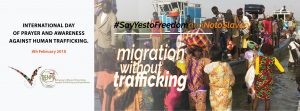
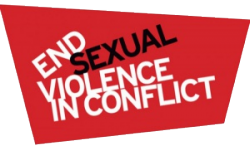 International Day for the Elimination of Sexual Violence in Conflict is a United Nations observance on June 19 to raise awareness of the need to put an end to conflict-related sexual violence.
International Day for the Elimination of Sexual Violence in Conflict is a United Nations observance on June 19 to raise awareness of the need to put an end to conflict-related sexual violence.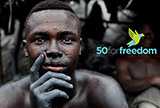
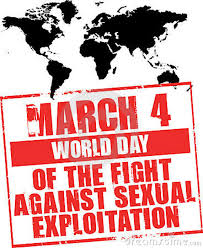 Every year since 2009, 4th March has been designated as World Day of the Fight Against Sexual Exploitation. Although there are exceptions, sexual exploitation overwhelmingly involves women and children, and it is a problem of worldwide proportions.
Every year since 2009, 4th March has been designated as World Day of the Fight Against Sexual Exploitation. Although there are exceptions, sexual exploitation overwhelmingly involves women and children, and it is a problem of worldwide proportions. 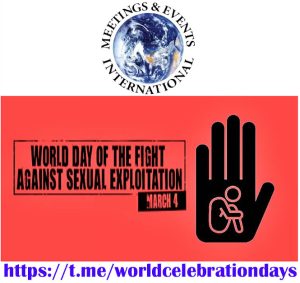 The International Labour Organisation (ILO) estimates that nearly a million people are trafficked every year for purposes of sex ual exploitation. Although 98% are women and girls, this number also includes a significant number of boys and young men. The major international crimes are trafficking in drugs and weapons, but sexual trafficking follows closely behind and is now a highly lucrative international criminal industry.
The International Labour Organisation (ILO) estimates that nearly a million people are trafficked every year for purposes of sex ual exploitation. Although 98% are women and girls, this number also includes a significant number of boys and young men. The major international crimes are trafficking in drugs and weapons, but sexual trafficking follows closely behind and is now a highly lucrative international criminal industry.  The United Nations is committed to fighting against slavery and considers bonded labour, forced labour, the worst forms of child labour and trafficking people as modern forms of slavery.
The United Nations is committed to fighting against slavery and considers bonded labour, forced labour, the worst forms of child labour and trafficking people as modern forms of slavery.